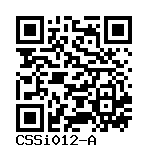CSSi012-A
General
Cell Line |
|
| hPSCreg name | CSSi012-A |
| Cite as: | CSSi012-A (RRID:CVCL_A8KQ) |
| Cell line type | Human induced pluripotent stem cell (hiPSC) |
| Similar lines |
PFIZi013-A (RCi215, RCFB59 C9) Donor's gene variants: TARDBP, TARDBP Donor diseases: Amyotrophic lateral sclerosis UCLi004-C (RCi172, RCFB60c2) Donor's gene variants: C9orf72, C9orf72 Donor diseases: Amyotrophic lateral sclerosis Frontotemporal dementia SAPi004-A (ALS III, TDP43-A382T/A382T, ALS III-TDP43-A382T/A382T) Donor diseases: Amyotrophic lateral sclerosis UCLi004-A (RCi173, RCFB60c6) Donor's gene variants: C9orf72, C9orf72 Donor diseases: Amyotrophic lateral sclerosis Frontotemporal dementia UCLi004-B (RCFB60c7, RCi177) Donor's gene variants: C9orf72, C9orf72 Donor diseases: Amyotrophic lateral sclerosis Frontotemporal dementia |
| Last update | 23rd April 2021 |
| User feedback | |
Provider |
|
| Generator | Fondazione Casa Sollievo della Sofferenza IRCCS (CSS) |
| Owner | Fondazione Casa Sollievo della Sofferenza IRCCS (CSS) |
| Derivation country | Italy |
External Databases |
|
| BioSamples | SAMEA8427021 |
| Cellosaurus | CVCL_A8KQ |
| Wikidata | Q108820087 |
General Information |
|
| Publications | |
| * Is the cell line readily obtainable for third parties? |
Yes Research use: allowed
Clinical use: not allowed
Commercial use: not allowed
|
Donor Information
General Donor Information |
|
| Sex | male |
| Age of donor (at collection) | 35-39 |
| Ethnicity | caucasian |
Phenotype and Disease related information (Donor) |
|
| Diseases | A disease was diagnosed.
|
Karyotyping (Donor) |
|
| Has the donor karyotype been analysed? |
Yes
|
External Databases (Donor) |
|
| BioSamples | SAMEA8427022 |
Ethics
| Has informed consent been obtained from the donor of the embryo/tissue from which the pluripotent stem cells have been derived? | Yes |
| Was the consent voluntarily given? | Yes |
| Has the donor been informed that participation will not directly influence their personal treatment? | Yes |
| Can you provide us with a copy of the Donor Information Sheet provided to the donor? | No |
| Do you (Depositor/Provider) hold the original Donor Consent Form? | No |
| If you do not hold the Donor Consent Form, do you know who does? | Yes |
| Please indicate whether the data associated with the donated material has been pseudonymised or anonymised. | pseudonymised |
| Does consent explicitly allow the derivation of pluripotent stem cells? | No |
| Does consent prevent CELLS DERIVED FROM THE DONATED BIOSAMPLE from being made available to researchers anywhere in the world? | No |
Does consent permit research by | |
| an academic institution? | Yes |
| a public organisation? | No |
| a non-profit company? | Yes |
| a for-profit corporation? | No |
| How may genetic information associated with the cell line be accessed? | No information |
| Will the donor expect to receive financial benefit, beyond reasonable expenses, in return for donating the biosample? | No |
| Has a favourable opinion been obtained from a research ethics committee, or other ethics review panel, in relation to the Research Protocol including the consent provisions? | Yes |
| Name of accrediting authority involved? | Comitato Etico Università Cattolica del Sacro Cuore |
| Approval number | A.1320/CE/2012 |
| Has a favourable opinion been obtained from a research ethics committee, or other ethics review panel, in relation to the PROPOSED PROJECT, involving use of donated embryo/tissue or derived cells? | Yes |
| Name of accrediting authority involved? | Comitato Etico Università Cattolica del Sacro Cuore |
| Approval number | A.1320/CE/2012 |
| For generation of the cell line, who was the supplier of any recombined DNA vectors or commercial kits used? | |
hIPSC Derivation
General |
|
| Source cell line name |
human skin fibroblasts (HSFs) Derived from same source line (potentially other lot and donor, see below):
|
| Source cell type | |
| Source cell origin |
An organ that constitutes the external surface of the body. It consists of the epidermis, dermis, and skin appendages.
Synonyms
|
| Age of donor (at collection) | 35-39 |
| Collected in | 2014 |
Reprogramming method |
|
| Vector type | Non-integrating |
| Vector | Episomal |
| Is reprogramming vector detectable? |
Yes |
| Methods used |
RT-PCR
|
| Files and images showing reprogramming vector expressed or silenced | |
Vector free reprogramming |
|
| Type of used vector free reprogramming factor(s) |
None
|
Other |
|
| Selection criteria for clones | Morphology, marker expression |
| Derived under xeno-free conditions |
Yes |
| Derived under GMP? |
No |
| Available as clinical grade? |
No |
Culture Conditions
| Surface coating | Matrigel/Geltrex |
| Feeder cells |
No |
| Passage method | Mechanically |
| Medium |
Other medium:
Base medium: Nutristem XF
Main protein source: Serum concentration: % |
Characterisation
Analysis of Undifferentiated Cells
| Marker | Expressed | Immunostaining | RT-PCR | Flow Cytometry | Enzymatic Assay | Expression Profiles |
| TRA 1-60 |
Yes |
|
||||
| POU5F1 (OCT-4) |
Yes |
Score:
| Marker | Present | Absent |
| mCpG | ||
| OCT4 |
Morphology pictures
Differentiation Potency
In vivo teratoma
In vitro spontaneous differentiation
Microbiology / Virus Screening |
|
| Mycoplasma | Negative |
Genotyping
Karyotyping (Cell Line) |
|
| Has the cell line karyotype been analysed? |
Yes
|
Other Genotyping (Cell Line) |
|


Login to share your feedback, experiences or results with the research community.